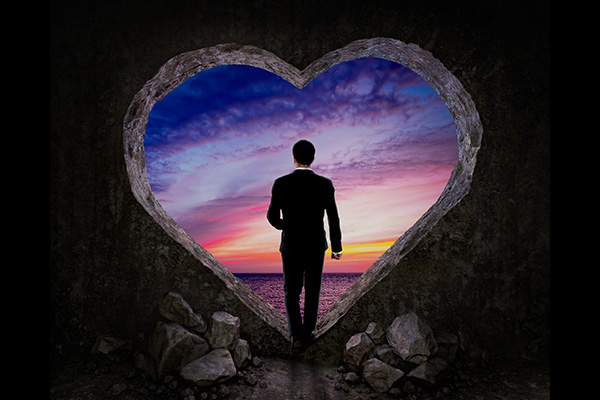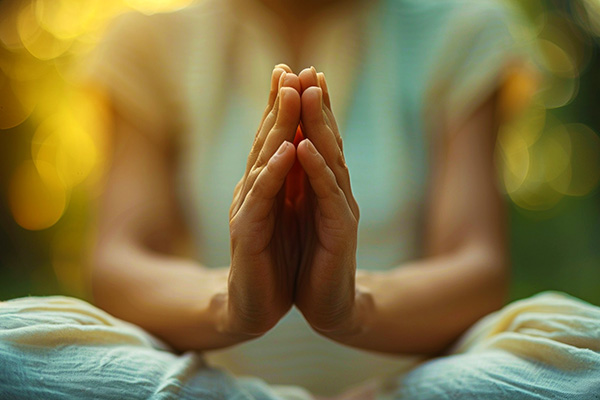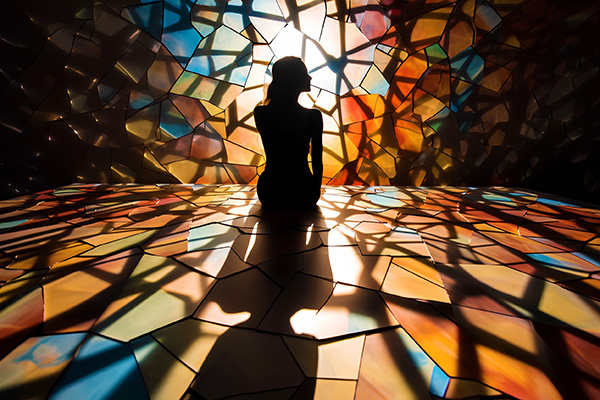triggers
How Mars Retrograde Impacts Your Love Life
 From tonight until February 23, 2025, the astrological climate will be dominated by Mars Retrograde, a time when the assertive planet of passion, drive, and action appears to be moving backwards across the sky.
From tonight until February 23, 2025, the astrological climate will be dominated by Mars Retrograde, a time when the assertive planet of passion, drive, and action appears to be moving backwards across the sky.
The Mars retrograde cycle occurs approximately every two years and creates a celestial atmosphere that challenges us to slow down, reflect, and reevaluate how we navigate the aspect of our lives impacted by a retreating Mars, especially love and relationships.
This time Mars will reverse through the bold sign of Leo until January 3, 2025, before retreating further into the emotional waters of Cancer until February 23. The shift from Leo to Cancer will bring a dynamic shift in how we experience passion, intimacy, and connection.
Mars retrograde typically signals a period of inward focus. The fiery, action-oriented energy of Mars is muted, forcing us to rethink how we assert ourselves and pursue our desires.
When Mars is in retrograde, direct action often feels less effective. Misunderstandings may arise, frustrations may simmer, and the usual outlets for passion or conflict resolution may not work as intended.
In the context of relationships, Mars retrograde tends to bring old wounds and unresolved issues to the surface. The next 79 days will be a time when hidden frustrations or imbalances within partnerships come to the surface. It’s not uncommon to experience tension during this time, as retrograde forces us to confront aspects of our love lives that we may have avoided.
Seeing The Spiritual Essence In Others
 My world was turned upside down when my father was diagnosed with pancreatic cancer. For seven agonizing months in 2005, I became his caregiver, managing the extreme emotional and physical toll of his illness.
My world was turned upside down when my father was diagnosed with pancreatic cancer. For seven agonizing months in 2005, I became his caregiver, managing the extreme emotional and physical toll of his illness.
Even the hospice staff, experienced in end-of-life care, commented at the time that my father was not an easy patient to care for. Their observation confirmed my own feelings on the matter and highlighted the unique challenges of the difficult karmic relationship I had with my father.
Throughout this stressful time, I held out hope for a miracle. I felt compelled to seek guidance, but unfortunately Spirit revealed a timeline of six to twelve months. This devastated me at the time, but I’ve since come to accept that arrivals and departures are part of every soul’s journey. Spirit was simply confirming a poignant truth: at some point we are all called home to the spirit realm.
Despite his resistance to any form of treatment, my father allowed a trusted colleague of mine, a master in his healing modality, to visit our home weekly for body alignment sessions. These sessions became a turning point — not only for my father, but for me as well.
During their second session, my healer friend shared an observation that struck a deep chord. He sensed an immense amount of bitterness and resentment in my father, energies he had perceived without any prior knowledge of my father’s emotional state or life history. He then offered me a piece of wisdom that changed the way I viewed not only my father, but all of my relationships: “Try to see only the true spiritual essence that is your father.”
How To Embrace Your Shadow Self
 Most people tend to shy away from acknowledging their dark or “shadow” side when it comes to spirituality.
Most people tend to shy away from acknowledging their dark or “shadow” side when it comes to spirituality.
In fact, the tendency to avoid the uncomfortable aspects of the self is due in large part to our religious or spiritual background. Throughout history, most traditions have encouraged people to suppress, deny, or transcend their human flaws and shortcomings in favor of higher ideals such as purity, salvation, or enlightenment.
This reluctance to face the shadow within continues to this day, with modern spiritual and metaphysical communities often favoring light, love, and positivity while largely ignoring the messy, difficult, and painful aspects of the human experience.
But by avoiding the shadow within, we deny ourselves the opportunity for a deeper understanding of our soul’s purpose and untapped possibilities for personal and spiritual growth.
According to Carl Jung, the famous Swiss psychiatrist who pioneered the concept of the “shadow” in psychology, “one is not enlightened by imagining figures of light, but by making the darkness conscious.” Enlightenment isn’t about avoiding the shadow. Instead, it’s about facing it and integrating it into our being.
When we face the shadow within, we reclaim parts of ourselves that hold immense power, creativity, and insight. By delving into the deeper truths of our shadow selves, we can unravel the unconscious patterns that dictate our lives, allowing for true healing, transformation, and enlightenment.
How To Beat The Holiday Blues This Year!
 The holidays can be a very difficult and depressing time for some people. It can trigger unresolved emotions from childhood, unhealed trauma from past relationships, or unfinished grief from lost loved ones.
The holidays can be a very difficult and depressing time for some people. It can trigger unresolved emotions from childhood, unhealed trauma from past relationships, or unfinished grief from lost loved ones.
It can also make you feel more lonely, disconnected, and isolated than usual.
Especially for people struggling with existing mental health conditions such as anxiety or depression, their symptoms may worsen during the holidays due to increased stress, social demands, and cultural triggers.
But there are ways to beat the holiday blues and overcome sadness, depression, or low spirits during “the season to be jolly.” There are ways you can take back your power and improve your mood and overall well-being.
First, it is necessary to determine what is causing you to not feel the holiday cheer that everyone else seems to be experiencing.
Several factors can contribute to negative, gloomy thoughts and feelings during this time of year. A common trigger for many of us is that mainstream holiday traditions tend to emphasize spending time with loved ones and family, which can exacerbate feelings of loneliness for those who are socially isolated or have lost loved ones. This isolation can be particularly acute for those of us who live far from family or have strained relationships with them.
Navigating Loneliness During the Holidays
 The holiday season is traditionally portrayed as a time of togetherness, love, joy, and belonging. We are inundated with media images of families gathered around a festive table, friends celebrating, and communities coming together.
The holiday season is traditionally portrayed as a time of togetherness, love, joy, and belonging. We are inundated with media images of families gathered around a festive table, friends celebrating, and communities coming together.
Paradoxically, for many people, this time of year is instead filled with feelings of loneliness, isolation and disconnection.
The root cause is the societal stereotype and cultural assumption that everyone should be joyful, happy, and surrounded by loved ones during the holidays. If you’re not, for whatever reason, it can lead to feelings of inadequacy, isolation, and social failure.
Holiday loneliness is exacerbated by the stark contrast between our actual circumstances and the commercially driven, idealized versions of holiday gatherings and celebrations we see in advertisements, television shows, movies, and social media. This increases feelings of disconnection, low self-esteem, and even depression.
Loneliness during the holidays can have a significant impact on mental health. Feelings of isolation and disconnection during this time of year can exacerbate existing mental health issues and lead to the development of new ones. The constant reminders of togetherness and joy, combined with a lack of social connections and meaningful interactions, can increase feelings of loneliness, leading to emotional distress, feelings of emptiness and hopelessness, and a decline in overall well-being.